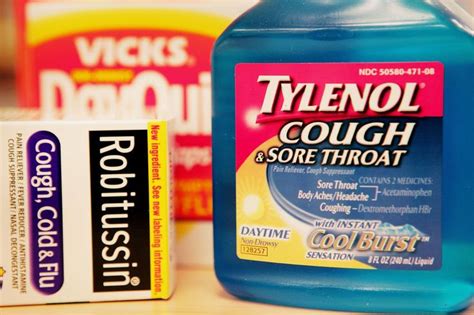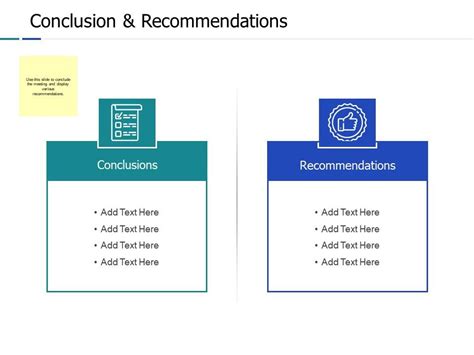Intro
Discover the best OTC cough suppressants, including natural remedies and medications, to relieve persistent coughs and soothe sore throats with effective over-the-counter options.
Coughing is a natural reflex that helps clear the airways of irritants, but when it becomes persistent and disruptive, it's essential to find relief. Over-the-counter (OTC) cough suppressants can provide effective relief from coughing, allowing individuals to rest, work, and engage in daily activities without discomfort. With numerous options available, it's crucial to understand the different types of OTC cough suppressants, their ingredients, and how they work to make informed decisions.
The importance of choosing the right OTC cough suppressant cannot be overstated. Coughing can lead to fatigue, headaches, and disrupted sleep patterns, affecting overall quality of life. Moreover, persistent coughing can be a symptom of underlying conditions, such as allergies, asthma, or respiratory infections, which require proper diagnosis and treatment. By selecting the most suitable OTC cough suppressant, individuals can alleviate symptoms, prevent complications, and improve their overall well-being.
When selecting an OTC cough suppressant, it's essential to consider the type of cough, underlying health conditions, and potential interactions with other medications. For example, individuals with high blood pressure or heart conditions should avoid certain ingredients, such as pseudoephedrine, which can exacerbate these conditions. Additionally, those with allergies or sensitivities should opt for hypoallergenic or fragrance-free options to minimize the risk of adverse reactions.
Types of OTC Cough Suppressants

OTC cough suppressants can be broadly categorized into several types, each with distinct mechanisms of action and benefits. The most common types include:
- Dextromethorphan (DM)-based cough suppressants, which work by blocking the cough reflex in the brain
- Guaifenesin-based expectorants, which help loosen and clear mucus from the airways
- Combination products, which pair DM or other cough suppressants with expectorants, decongestants, or pain relievers
- Natural and herbal options, such as honey, menthol, or eucalyptus oil, which can provide soothing and anti-inflammatory effects
Benefits of OTC Cough Suppressants
OTC cough suppressants offer numerous benefits, including:- Rapid relief from coughing and related discomfort
- Improved sleep quality and duration
- Enhanced ability to focus and engage in daily activities
- Reduced risk of complications, such as bronchitis or pneumonia, in individuals with underlying respiratory conditions
- Convenience and accessibility, as most OTC cough suppressants are available without a prescription
Top OTC Cough Suppressant Options

Some of the most effective OTC cough suppressant options include:
- Robitussin DM: A DM-based cough suppressant that provides long-lasting relief from coughing
- Mucinex: A guaifenesin-based expectorant that helps loosen and clear mucus from the airways
- NyQuil: A combination product that pairs DM with other ingredients, such as acetaminophen and doxylamine, to provide relief from coughing, congestion, and pain
- TheraFlu: A combination product that pairs DM with other ingredients, such as ibuprofen and phenylephrine, to provide relief from coughing, congestion, and pain
- Honey: A natural and herbal option that can provide soothing and anti-inflammatory effects, often used in combination with other ingredients, such as lemon and ginger
Factors to Consider When Choosing an OTC Cough Suppressant
When selecting an OTC cough suppressant, consider the following factors:- Type of cough: Dry, wet, or productive coughs may require different types of medications
- Underlying health conditions: Certain ingredients, such as pseudoephedrine, may exacerbate conditions like high blood pressure or heart disease
- Potential interactions: OTC cough suppressants can interact with other medications, such as blood thinners or sedatives
- Age and sensitivity: Children, older adults, or individuals with sensitivities may require specialized or gentle formulations
- Convenience and accessibility: Consider the availability, pricing, and packaging of different OTC cough suppressant options
How OTC Cough Suppressants Work

OTC cough suppressants work through various mechanisms to provide relief from coughing. DM-based cough suppressants, for example, block the cough reflex in the brain, while guaifenesin-based expectorants help loosen and clear mucus from the airways. Combination products, on the other hand, may pair DM or other cough suppressants with expectorants, decongestants, or pain relievers to provide comprehensive relief.
The working mechanisms of OTC cough suppressants can be summarized as follows:
- Blocking the cough reflex: DM-based cough suppressants, such as Robitussin DM, work by blocking the cough reflex in the brain, reducing the frequency and severity of coughing
- Loosening and clearing mucus: Guaifenesin-based expectorants, such as Mucinex, help loosen and clear mucus from the airways, making it easier to cough up and expel
- Reducing inflammation and congestion: Combination products, such as NyQuil or TheraFlu, may pair DM or other cough suppressants with expectorants, decongestants, or pain relievers to provide relief from coughing, congestion, and pain
Practical Examples and Statistical Data
OTC cough suppressants have been shown to be effective in providing relief from coughing and related discomfort. For example:- A study published in the Journal of Clinical Pharmacology found that DM-based cough suppressants, such as Robitussin DM, were effective in reducing the frequency and severity of coughing in individuals with acute cough
- A survey conducted by the National Institutes of Health found that over 70% of adults in the United States use OTC medications, including cough suppressants, to manage coughs and colds
- According to the American Academy of Family Physicians, OTC cough suppressants can provide rapid relief from coughing and related discomfort, with most individuals experiencing improvement within 30 minutes to 1 hour of taking the medication
Conclusion and Recommendations

In conclusion, OTC cough suppressants can provide effective relief from coughing and related discomfort. When selecting an OTC cough suppressant, it's essential to consider the type of cough, underlying health conditions, and potential interactions with other medications. By choosing the most suitable OTC cough suppressant and following the recommended dosage and usage guidelines, individuals can alleviate symptoms, prevent complications, and improve their overall well-being.
We invite readers to share their experiences and opinions on OTC cough suppressants in the comments section below. Have you found a particular OTC cough suppressant to be effective in relieving your coughing symptoms? Do you have any questions or concerns about using OTC cough suppressants? Share your thoughts and help others make informed decisions about their cough relief options.
What is the most effective OTC cough suppressant?
+The most effective OTC cough suppressant depends on the individual's specific needs and health conditions. However, Robitussin DM and Mucinex are two popular and highly-rated options that have been shown to provide effective relief from coughing and related discomfort.
Can I take OTC cough suppressants with other medications?
+It's essential to consult with a healthcare professional before taking OTC cough suppressants with other medications, as interactions can occur. Certain ingredients, such as pseudoephedrine, may exacerbate conditions like high blood pressure or heart disease.
Are OTC cough suppressants safe for children and older adults?
+OTC cough suppressants can be safe for children and older adults when used according to the recommended dosage and usage guidelines. However, it's essential to consult with a healthcare professional before giving OTC cough suppressants to children under 4 years old or older adults with underlying health conditions.
